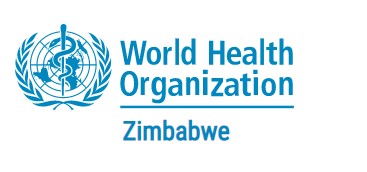Forty-six-year-old Goodluck Moyo* from Chitungwiza, a town just outside the country’s capital, Harare, started feeling unwell after his day shift at work. “I suspect it was the water I drank while at work,” he says. “I got worse rapidly. I was rushed to the 24-hour clinic in my area, where I was put on a drip.” He was later referred to the cholera treatment centre at Chitungwiza General Hospital for further treatment.
Zimbabwe is responding to a cholera outbreak that has seen cases reported in all its 10 provinces. Harare, Manicaland and Masvingo provinces are the worst affected. In the week ending on 21 January 2024, a total of 1499 new suspected cholera cases were reported from all the provinces. This was a 20% decrease from 1875 cases reported in the previous week.
Outbreak control efforts are being stepped up. Treatment centres have been established in hotspot locations, public awareness campaigns on the risks of the disease are ongoing, while disease surveillance, prevention as well as water, sanitation and hygiene services are being improved to avert further spread of the disease.
“In the fight against cholera, collaboration is key. By working together with governments, communities and other partners, WHO leverages its expertise and resources to support a holistic response that tackles the disease comprehensively, from improving access to clean water and sanitation to promoting hygiene practices and building long-term resilience,” said Professor Jean-Marie Dangou, WHO Representative in to Zimbabwe.
In December 2023, World Health Organization (WHO) delivered a 22-metric ton consignment of cholera kits, which included medical supplies and equipment and personal protective equipment enough to manage 600 severe and 1400 mild cases. The consignment has been used to establish and upgrade cholera treatment centres in areas experiencing high numbers of cholera cases, including Chitungwiza cholera treatment centre.
The upgrades include improved sanitation systems, expanded treatment facilities and access to clean water – all critical elements in the fight against cholera. The investment in infrastructure is a vital step towards building a more resilient healthcare system, better equipped to handle future outbreaks.
“I am now feeling so much better. I really appreciate the support I have received here,” says Moyo of the upgraded facility.
Two treatment centres have been established in Manicaland and one in Masvingo. In Harare, two polyclinics have also been set up as part of decentralization efforts as well as a push to decongest Beatrice Road Infectious Diseases Hospital, which has been the mainstay of the cholera and infectious disease response.
“Ideally cholera cases should be managed at source, but people have been coming to Beatrice Road Hospital. As a result, the hospital is overwhelmed,” says Dr Prosper Chonzi, Harare City Health Services Director. “We are happy that there is now this drive to decentralize because cholera patients should be managed in their communities. It is also good for us as a system because decentralization promotes good outcomes as it eliminates competition for time and space at referral hospitals.”
In Zimbabwe, the first case of cholera was reported in February 2023, with over 20 000 people and 370 deaths registered as of 23 January 2024. WHO is working closely with the Zimbabwean government to implement comprehensive response strategies. This includes strengthening surveillance systems, raising public awareness about hygiene practices, strengthening case management and ensuring access to safe water and sanitation for vulnerable communities.
“We appreciate the intervention by the Ministry of Health and WHO. This intervention is a great is critical especially for our community where most of our church members have not really embraced medical interventions. With continuous engagements and education, we hope that all affected by cholera will make use of the centres set up in our community,” says Chief Barnabas Mafararikwa of Mafararikwa village in Manicaland province.
To further bolster its response, Zimbabwe is set to receive more than 2.2 million doses of the oral cholera vaccine following the approval by the WHO International Coordinating Group on Vaccine Provision earlier this month. The first batch of 892 286 doses of the vaccine are expected in the country by 25 January 2024 and the campaign is expected to commence a few days later in 26 districts.
Distributed by APO Group on behalf of World Health Organzation (WHO) – Zimbabwe.
